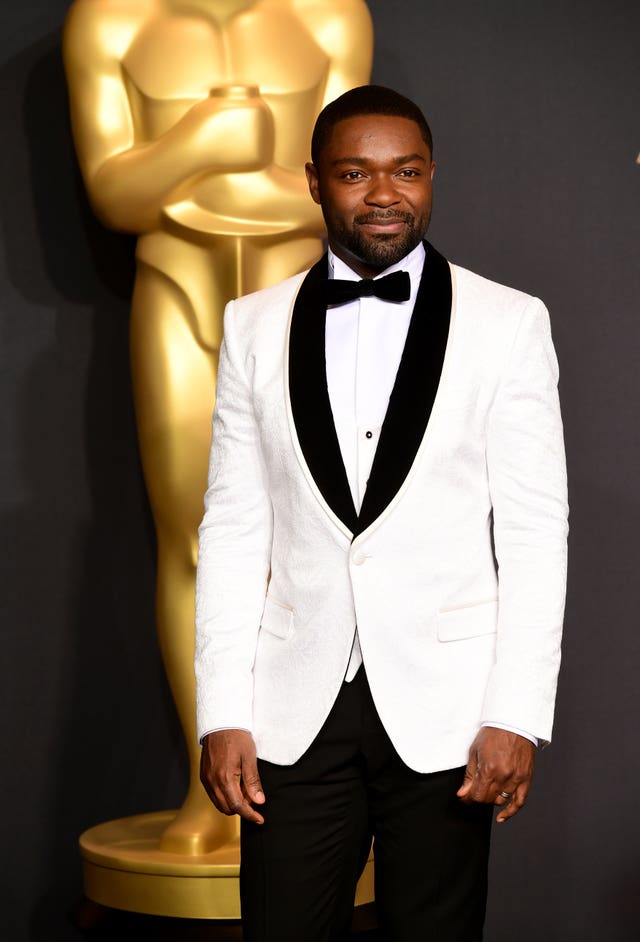Actor David Oyelowo has said he is concerned that Will Smith’s Oscars slap will be detrimental to the “ongoing push for inclusion”, adding it “should not be a springboard for proxy arguments in Hollywood circles about race, respectability and belonging”.
The Selma actor – who played Martin Luther King in the film that triggered much of the #OscarsSoWhite debate in 2015, when the movie was overlooked in all categories except best picture and original song – said he has noted coded language being used to discuss the incident.
Writing a guest column in the Hollywood Reporter, the British star said: “My fear is that this unfortunate incident, which has us all processing, will have a negative effect on the ongoing push for inclusion.
Guest Column: David Oyelowo On the Will Smith Slap, the Intersection of Race and Bias https://t.co/56z1RwJwUg
— The Hollywood Reporter (@THR) April 7, 2022
“There are those who, in a bid to make sure something of this nature never happens again, will operate through an unconscious — or conscious — bias.
“A bias that still governs so much of the decision making in Hollywood. It would be tragic if a bid to prevent such an incident from happening again becomes an excuse for ideas about inclusion and diversity to backslide.
“That would only confirm the disingenuous nature of some of these pledges in the first place. This incident should not be a springboard for proxy arguments in Hollywood circles about race, respectability and belonging.”
He was present at the Dolby Theatre on Oscars night when Smith stormed the stage to slap Chris Rock after the comedian made a joke about his wife.

Oyelowo said the incident led to him being “confronted by the same rising anxiety all black people feel when the face that flashes up on the news after a crime is reported is a black one”.
“You find yourself thinking, ‘What does this mean for us?’ ‘What does that mean for me?’
“Very soon after the now infamous Oscar ceremony, I walked into an Oscar after party and was immediately confronted by that which I feared.
“An older white gentleman sidled up to me with relish in his demeanour and said ‘He should have been dragged right out of there.’
“You may well agree with that sentiment, but it’s not what he said, it’s the way he said it. I know that relish. I know that demeanour, and it is ugly to its core in all of its coded messaging.”

Oyelowo said the “unfair nature” of what happened to Rock and all the Oscar winners whose success was overshadowed by Smith’s actions “cannot be overstated”, but added: “In all of our processing of what happened, let’s not forget that there is a disposition exemplified by the man who approached me at that after party.
“His gossipy lean and the half smile on his face is indicative of what must not be allowed to creep into the aftermath of this incident.
“We must be vigilant against decision making that would detrimentally affect the gains made by the likes of the Academy, Cheryl Boone Isaacs (former president of the Academy) and all of those fighting for a more diverse, inclusive and equitable entertainment industry and world.
“If there’s one thing I’ve learnt about Hollywood, it’s that it harbours some very good people with good intentions and a number of broken people with bad intentions.
“I’m calling on the good people with good intentions to stay focused on building on the great gains we’ve recently made. They mustn’t be eroded by those with bad intentions who would seek with relish to weaponise this incident to derail those gains and divide us.”
Smith has resigned from the Academy of Motion Picture Arts and Sciences after the controversy and the board has moved its meeting to discuss to this Friday in a bid to deal with the incident “in a timely fashion”.
Smith has said he will accept any consequences from the disciplinary hearing.
